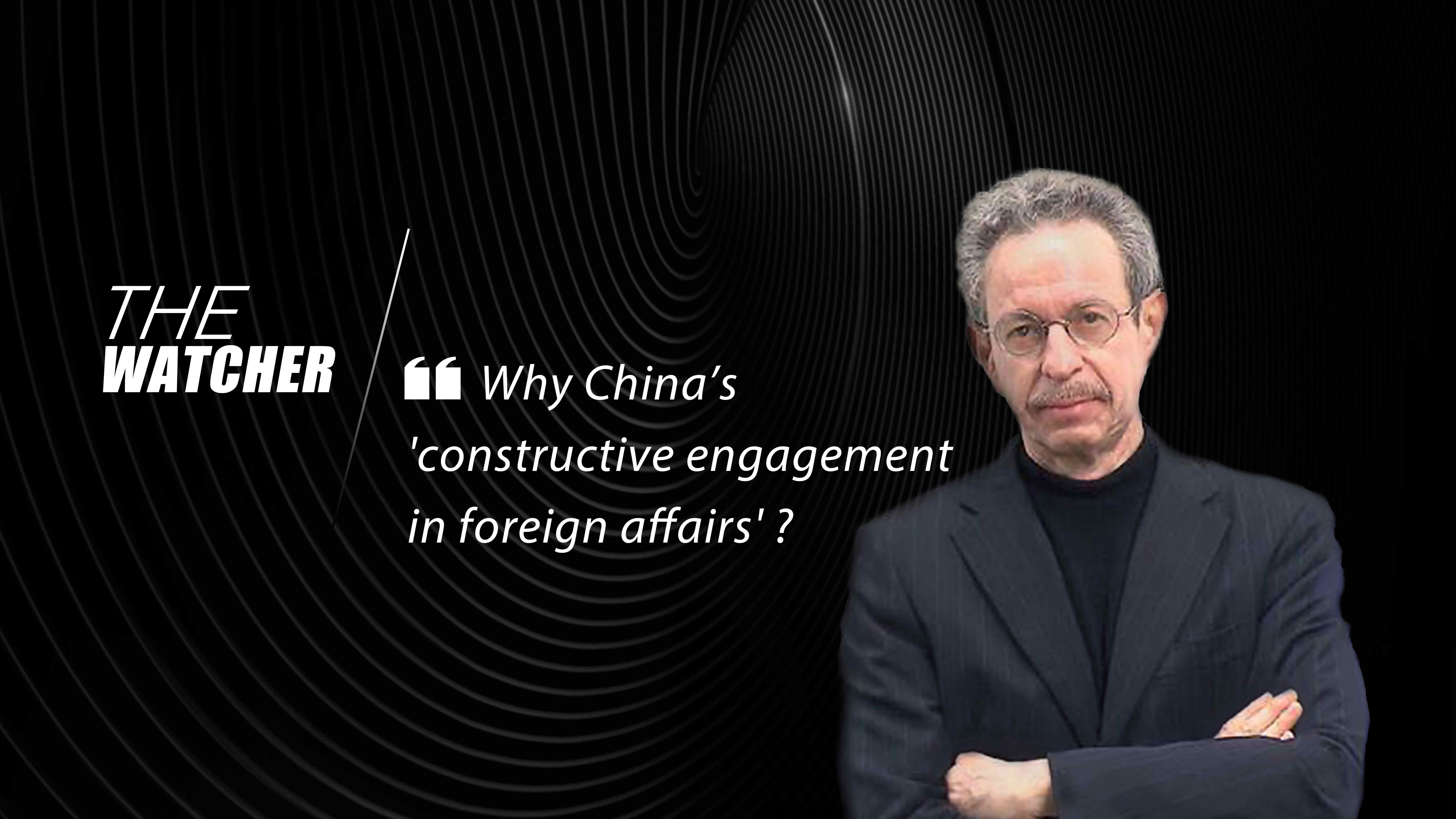
Opinions
23:05, 08-Mar-2018
The Watcher: Why China’s 'constructive engagement in foreign affairs'?
Robert L. Kuhn

I’m Robert Lawrence Kuhn and here’s what I’m watching: what China calls its "constructive engagement in foreign affairs," a transformation of China’s foreign policy from largely being reactive, protecting China’s parochial interests, to confidently being proactive, interacting robustly on all matters of global importance such as in the areas of diplomacy, economics, ecology, culture, science and technology.
One way to appreciate China’s change is to compare “constructive engagement” with the country's past primary principle of “non-interference.” In fact, “non-interference” remains sacrosanct in that China does not seek to change the political structure of other countries, but “non-interference” now is more a guardrail than the primary principle.
As China moves to the world’s center stage, in President Xi Jinping’s words, China can leverage its national strengths and capabilities, applying Chinese wisdom and Chinese solutions, to address the problems in countries or regions that share complementary interests with China.
The Belt and Road Initiative – constructing infrastructure in developing countries – exemplifies China’s Constructive Engagement. The underlying theory of Constructive Engagement is that there should be a new way for addressing foreign policy and security concerns that differs radically from the two extremes of isolation and intervention.
While China recognizes that Constructive Engagement is part of its responsibility as a major power to contribute to the global commons, China is not performing acts of charity. Promoting global stability and development is entirely in China’s national interest. No country is more dependent on international trade and no country is more vulnerable to global crises.
Moreover, as developing countries grow their markets and increase their trade, China can diversify its international commerce, becoming less reliant on the US and Europe, where politics can interfere.
But in these new waters, China will not find the sailing smooth. On the one hand, some Western media criticize China as a “free rider” in global affairs, and on the other hand, China’s Belt and Road is criticized as its initiative to reshape the world – if not in China’s image, then for China’s benefit.
It is beyond the scope of this commentary to address such concerns, although there is no question that developing countries welcome China’s world-leading experience in building much-needed infrastructure.
As China increases its Constructive Engagement, other countries will push back. China must be ready to deal with such resistance in sophisticated ways, making mid-course corrections as needed and promoting its new kind of global governance with subtlety. I’m keeping watch.
(Dr. Robert Lawrence Kuhn is a CGTN anchor, a public intellectual, international corporate strategist and investment banker.)

SITEMAP
Copyright © 2018 CGTN. Beijing ICP prepared NO.16065310-3
Copyright © 2018 CGTN. Beijing ICP prepared NO.16065310-3